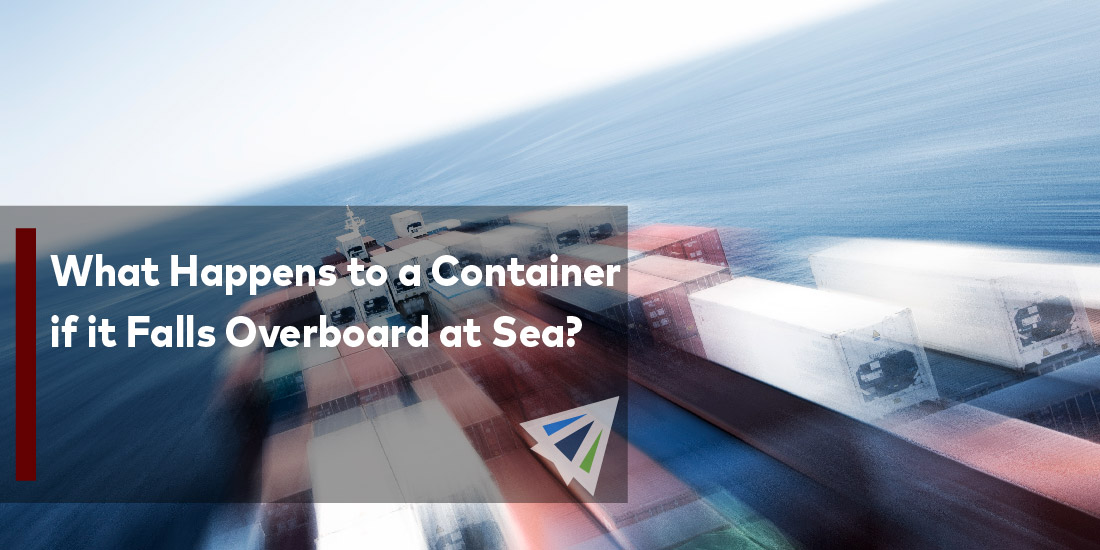Lost containers are a real concern for various reasons. There are environmental threats posed by containers continuously falling overboard from container ships, as well as economic implications for lost cargo and the severe effects it can have on a company’s bottom line. With the severity of these issues, many wonder what exactly happens to a shipping container when it topples overboard into the sea.
Unfortunately, it is not an unusual instance. Container loss at sea is a common occurrence with far-reaching effects. The World Shipping Council reports that during 2018 and 2019, 1,382 containers were lost on average every year. Numerous reasons contribute to these losses, such as bad weather, inappropriate loading, and the extraordinary expansion of international trade.
But once they are lost to the sea, what happens to these abandoned containers? They don’t just vanish into the abyss. While it may seem like a harmless event that occurs once in a blue moon, the truth is they turn into very serious risks to human activity as well as marine life.
Environmental Concerns of Containers Lost at Sea
The impact of missing containers on the environment is one of the urgent worries. A lot of containers are filled to the brim with products, some of which are dangerous and might seep into the marine environment, endangering marine life and coastal ecosystems. Furthermore, the containers themselves have the potential to entangle in aquatic features like coral reefs, further harming already delicate ecosystems.
Furthermore, misplaced containers might provide a serious risk to marine traffic’s ability to navigate. Sea currents may cause submerged containers to drift, posing a hazard to ships and perhaps resulting in accidents or grounding occurrences. These risks can impede marine trade and jeopardize public safety in crowded shipping channels like the Strait of Juan de Fuca (between Washington state and British Columbia), where reports of container losses have occurred.
Financial Consequences
There are also significant financial consequences associated with container loss. In addition to the upfront cost of the lost cargo, other costs include those related to salvage efforts, environmental cleanup, and possible legal obligations. The existence of litter-filled shorelines can discourage tourists and negatively impact local economies for coastal towns that depend on marine resources and tourism.
Despite these obstacles, the problem of container loss at sea is being worked on. Industry stakeholders, authorities, and environmental groups are working together to raise the bar for container safety, upgrade vessel monitoring systems, and create reaction plans for cleaning and retrieving containers.
Summary of Issues
On the other hand, there are several challenges in the way of reducing container loss. The enormity of worldwide maritime activities, in conjunction with capricious weather patterns and logistical limitations, renders preventative and recovery endeavors arduous. Furthermore, the absence of global standards pertaining to container loss exacerbates the situation by creating deficiencies in responsibility and implementation.
It is evident that a diversified strategy is required to manage this persistent problem as we traverse the murky waters of container loss. Coordinated action is needed at the local, national, and international levels for everything from better vessel design and loading procedures to increased surveillance and response capabilities.
Ultimately, the account of the lost containers is a warning about the interdependence of human activity and the natural world, not merely about environmental deterioration or marine accidents. We can work to protect our seas for future generations and make sure that the quiet threat beneath the waves is a thing of the past by addressing the issues raised by container loss head-on.
Should you have any questions regarding this and how it could impact your shipments, please reach out to our team today.
Additionally, we have our weekly market updates that can provide you with relevant freight news, updates, developments across the industry, and more.

